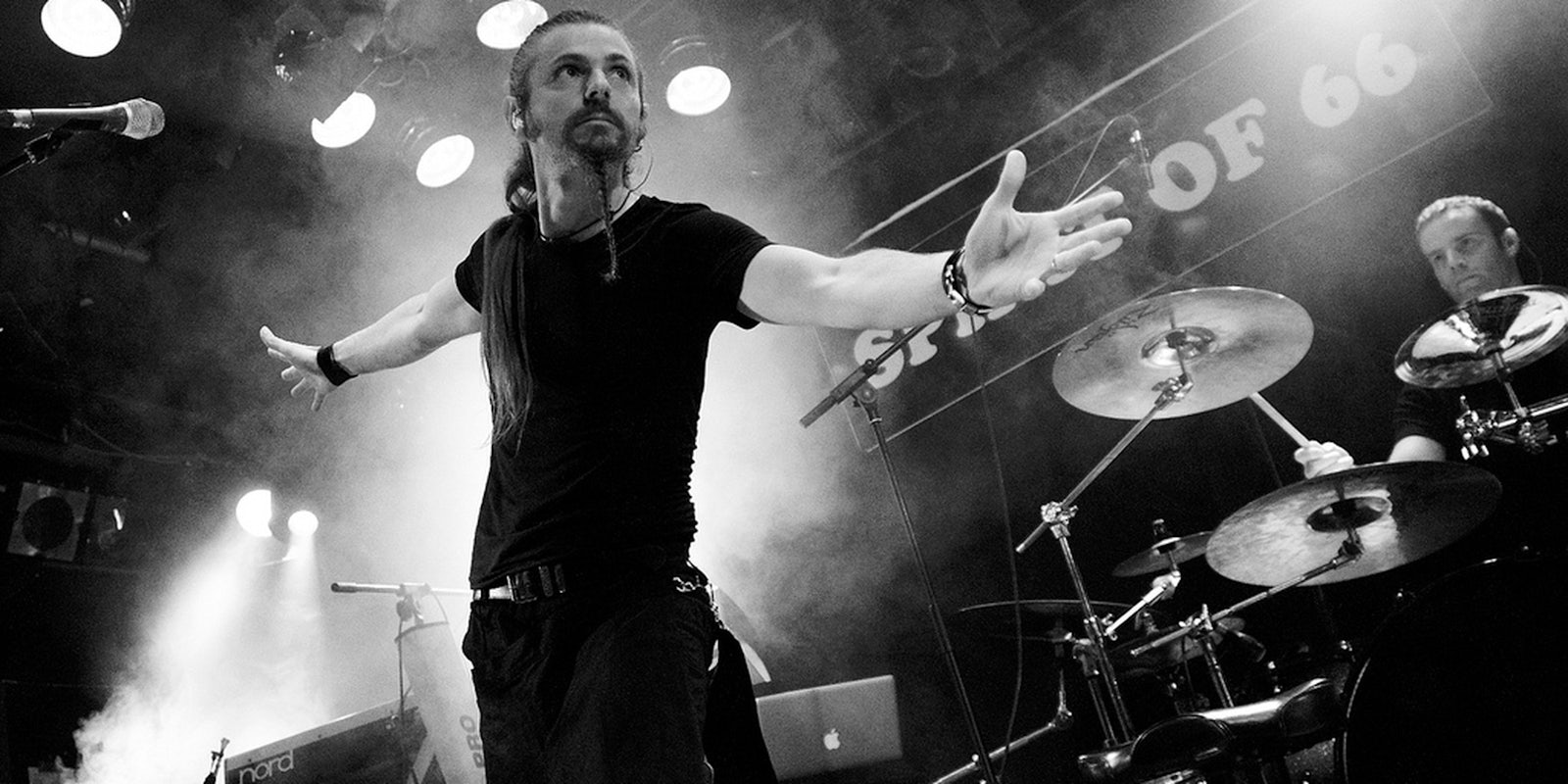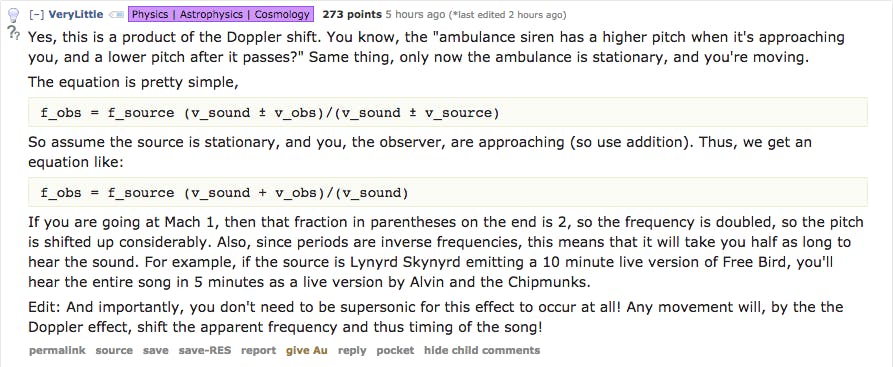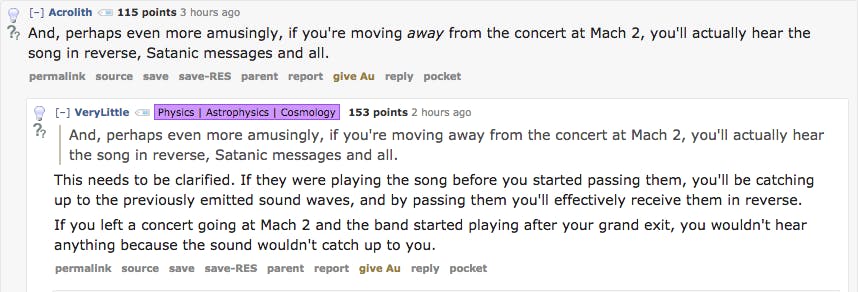You may recall from middle school science class that the Doppler effect is an acoustic phenomenon that explains why sounds seem higher-pitched and faster as they approach, and slower and deeper as they leave. The classic example is that of an ambulance driving by while you remains stationary:
wee-oo-Wee-Oo-WE-OO-WEO-WEEE-OOOO-Weee-Oooo-weeeeee-ooooo
The ambulance approaches its most recent soundwave as its siren is producing the next one, shortening the distance between the waves, making it higher pitched. As it leaves, the wavelengths are further apart, lowering the pitch.
But what would happen if, instead of the sound approaching you, you approached the sound really, really fast? What if you passed a concert at, say, Mach 1 (741.77 mph).
A redditor asked that very question on r/askscience and got a pretty thorough reply:
But here’s the cool thing. If the concert was already playing before you passed it, you would hear the music in reverse as you moved beyond the source of the sound.
Put another way, as the speakers produce the sounds in their normal order, the earlier parts of the song are the furthest away. So as you physically move past the speakers, you would collide with the newest sound waves, which are in the later parts of the song. As you continued to move, you would catch up with the sound waves of the song in reverse order, hearing the song as though it were played backwards.
“Satanic messages and all.”
Photo via mhx/Flickr (CC BY SA 2.0)




